2023-2024 ANNUAL REPORT
UNIVERSITY OF KANSAS INTERNATIONAL AFFAIRS

BUILDING CULTURAL BRIDGES
KANSAI UNIVERSITY PROGRAM ALUMNA RETURNS TO KU TO TEACH JAPANESE
INSIDE
KUIA Realignment page 3
Faculty Awards page 5
Student Profiles page 11

2023-2024 ANNUAL REPORT

KANSAI UNIVERSITY PROGRAM ALUMNA RETURNS TO KU TO TEACH JAPANESE
INSIDE
KUIA Realignment page 3
Faculty Awards page 5
Student Profiles page 11
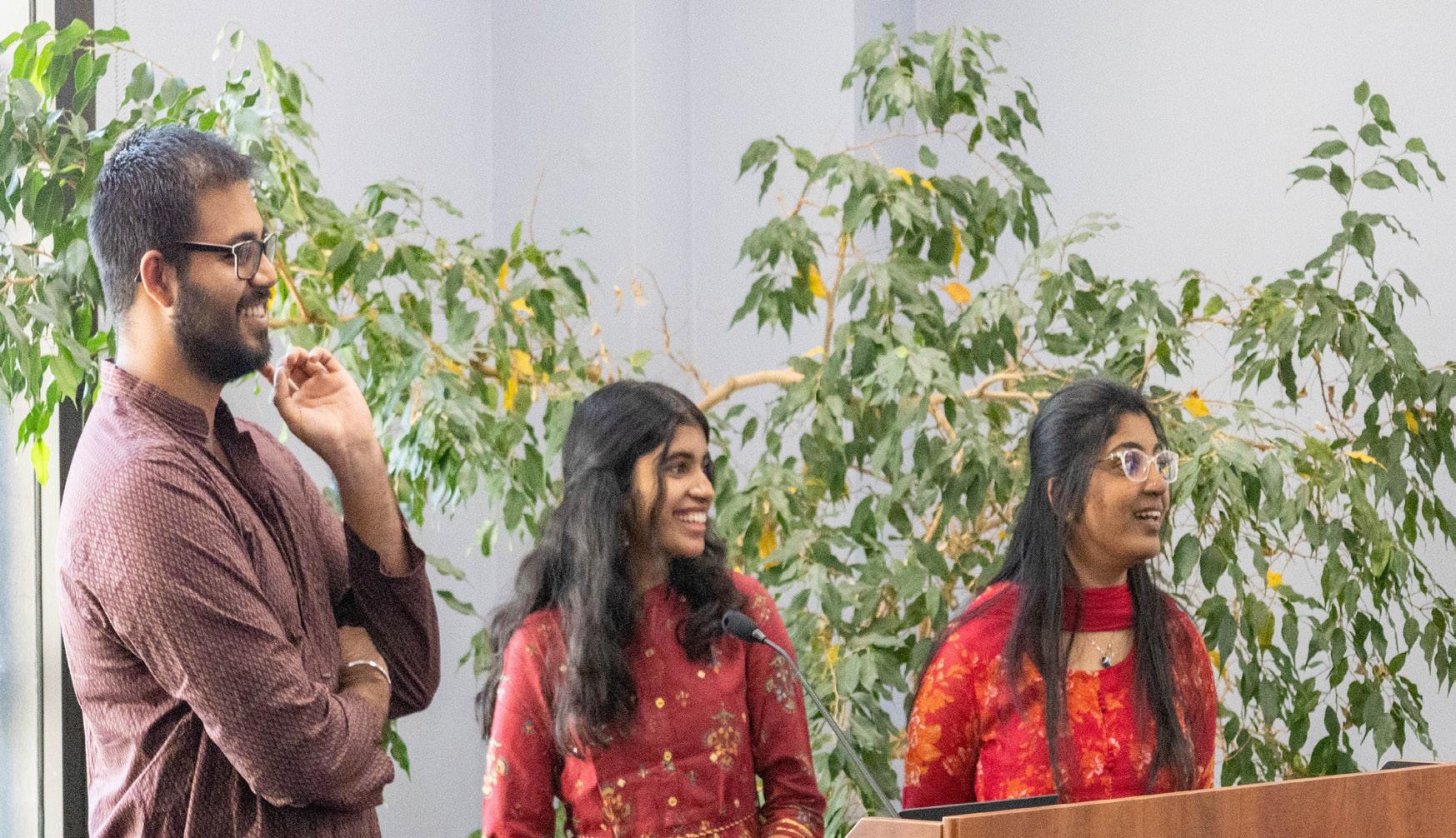
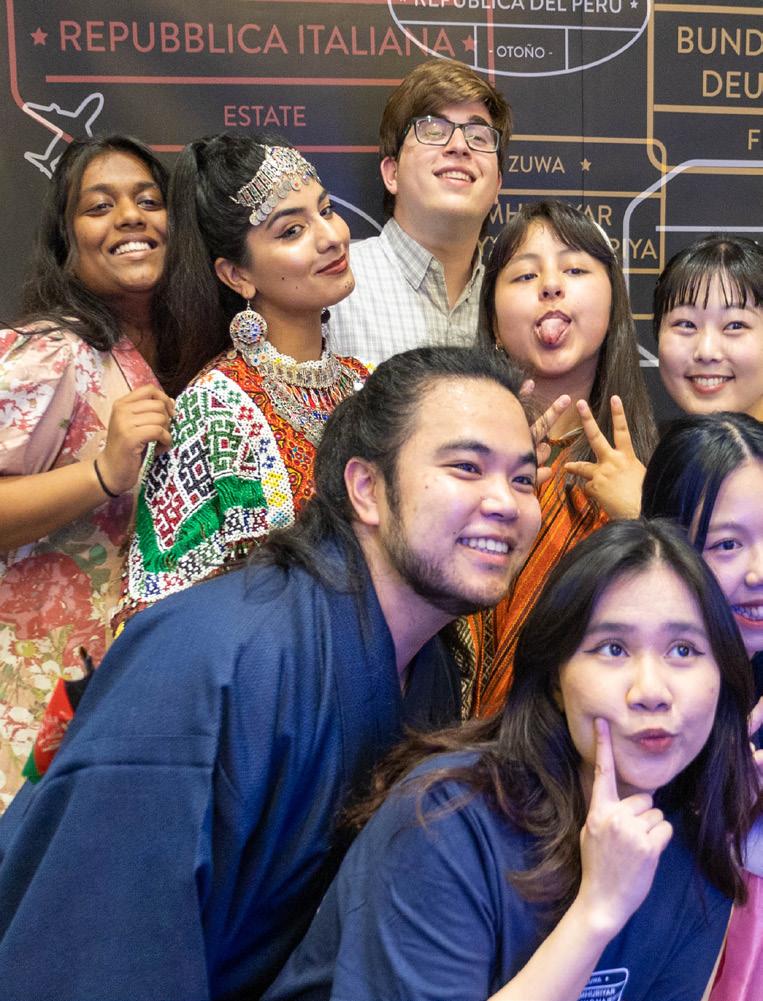

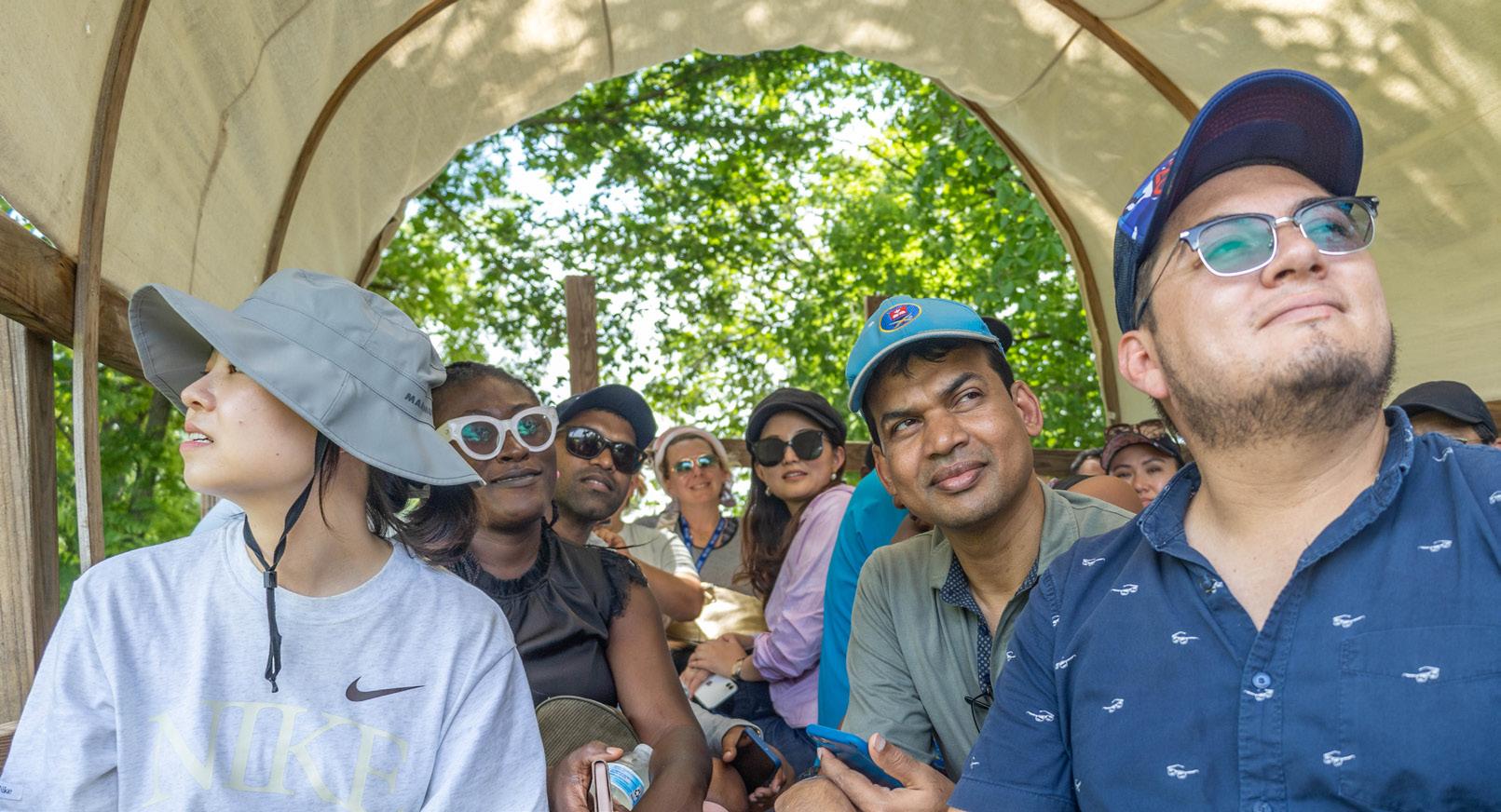

A year in review: 1. International Support Services launched the Atlas Series, giving students a chance to share their culture and build community. The Association of Indian Students was the first to present last August. 2. Participants in the International Jayhawk Festival’s fashion show pose for a group photo. 3. Hubert H. Humphrey fellows from around the world take in the rural Kansas landscape during a covered wagon ride at the Lazy T Ranch. 4. Nearly 450 international students graduated this spring and were recognized during a ceremony in May. 5. Global Scholar Sivani Badrivenkata asks a question during the Global Scholars Research Symposium this spring. Front cover: Miki Shono, a graduate student in East Asian languages and cultures, wears the traditional yukata at the 2024 Mid-Autumn Festival. Read more about her story on page 13.
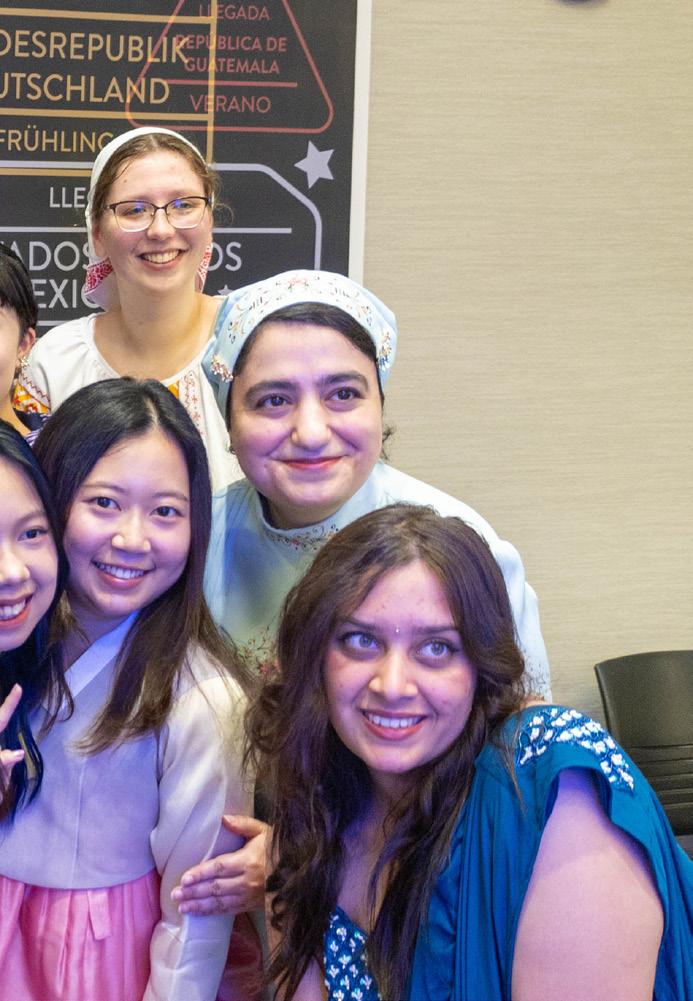
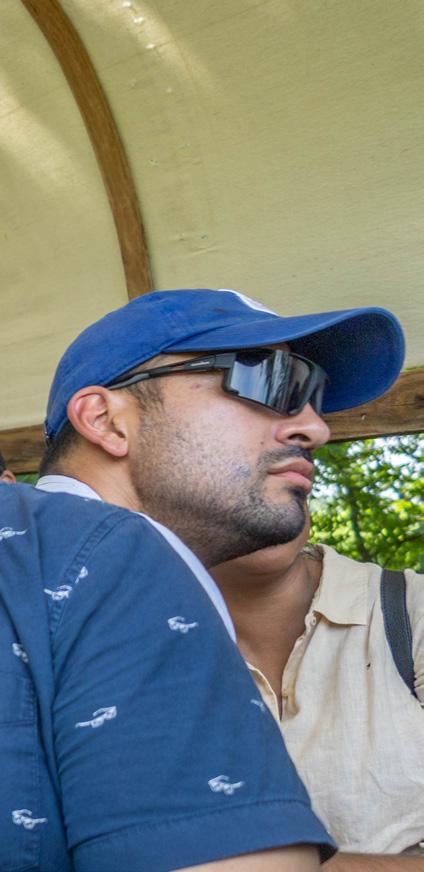

It gives me great pleasure to provide you with the 20232024 Annual Report for International Affairs. I am writing with Chancellor Doug Girod’s announcement of our record-breaking enrollments fresh in my mind and palpable excitement and promise in the air. We have 116 nations represented among our 30,770 students, bringing the world to Kansans from every county and Americans from every state. That this population of students is also our most academically talented, the most likely to graduate in four years, and the most likely to complete a degree program is the clearest evidence yet of a university in positive transformation as it seeks to change the very world we are connected to.
That story of transformation is the International Affairs story as well. We are both growing and more fully integrating as a division and in our work, and we are partnering across campus and the world in our efforts to bring that world into focus at KU and KU into focus abroad. Our people, research, international development efforts and curriculum speak to an absolute commitment to international and global engagement and a world that is excited to work with KU.
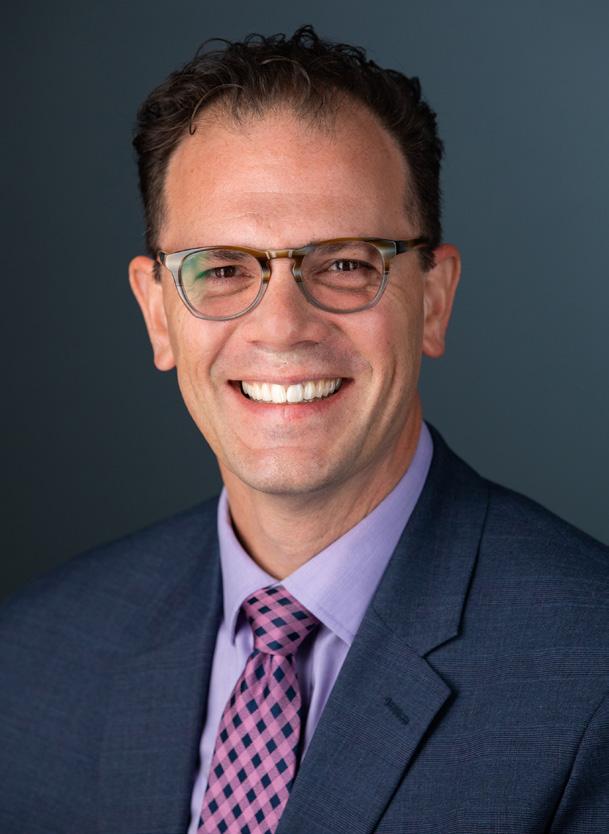
Our report underscores that KU’s accomplishments are hard earned and the result of thousands of inspiring stories of passion, commitment and intellectual curiosity. We did not get to record-breaking enrollments by accident!
While we plan, align and invest in our capacities, we are in the end all about people, and it is through their positive transformation that our impact is manifested and truly shines. We are a vibrant learning community.
Inside, you will read about us welcoming KU’s five areas studies centers and two provost fellows into International Affairs, a dream that was 20 years in the making and a vision that I read about even before arriving to KU back in 2005. You will also read about our faculty and how they are transforming our teaching, research and contributions to society through internationalization. Their stories are KU’s stories, and it is exciting to see these leaders’ powerful work gaining institution-wide recognition and integrated into our identity as a worldclass university.
You will be inspired by the stories of our students as well; young people who have been transformed by participating in a Fulbright program, coming to Lawrence as an exchange visitor and studying abroad to explore an academic major in a national context other than the United States. These stories bring us joy and inspiration. They drive us forward with excitement and a conviction that there is always more to do, more bridges to build and more contributions to make.
I hope you enjoy our report as much as we enjoyed pulling it together. This is such a rewarding process each year. Looking back on where we have been enables us to shift our gaze forward with renewed vigor and a conviction that we are doing incredible good in the world.
Thank you, as always, for your continuing support. We do this work for you too, and we are so grateful that you are part of our global community.
Rock Chalk Jayhawk!

KU Senior Internationalization Officer
The KU International Affairs Annual Report is published once a year for donors and friends of KUIA.
SENIOR INTERNATIONALIZATION
OFFICER
Charles Bankart
EDITOR Christine Metz Howard
GRAPHIC DESIGNER
Grace Virgillito
PRINTING
Mainline Printing
KU INTERNATIONAL AFFAIRS
Strong Hall, Room 300 1450 Jayhawk Boulevard Lawrence, Kansas 66045
Phone: 785-864-6161
Email: intlaffairs@ku.edu
In July KU’s Institute for International and Global Engagement and five Area Studies Centers realigned under KU International Affairs.
The reorganization leverages the excellent work of the Area Studies programs to better integrate international scholarship and global engagement throughout the university. The five Area Studies Centers are a defining strength of KU, which is one of 13 schools in the country to have four or more federally funded National Resource Centers. The realignment provides opportunities for greater collaboration among administrative units and supports the development of stronger international partnerships and collaborations.
As part of the reorganization, a faculty member will be hired as an associate vice provost to lead international and global engagement and the centers on a permanent basis.
A restructuring committee of Arash Mafi, executive dean of the College; Candan Tamerler, associate vice chancellor for research; Carol Smith, dean of KU Libraries; Jennifer Roberts, senior vice provost for Academic Affairs and Graduate Studies; and Charles Bankart, senior internationalization officer; will support the transition and serve as the search committee for the new associate vice provost. While the search is underway, the centers will report to Bankart.
With the reorganization, administrative and budget oversight of IIGE and the centers have shifted to International Affairs and academic appointments will remain with the College. Under the leadership of the new associate vice provost, international and global engagement will be a dedicated focus and function within International Affairs.
As part of the realignment process, International Affairs also hosts two provost fellow positions:
• Melissa Birch, associate professor in the School of Business, focuses on building international partnerships that connect KU’s expertise and resources with businesses, governments and higher education institutions around the world.
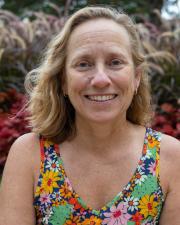
• Megan Greene, professor of history, continues her work to internationalize the curriculum, integrate intercultural competencies into KU’s core coursework, and increase capacity for international research and education abroad.
Through this realignment, International Affairs looks forward to expanding KU’s global reach and international education efforts. ■
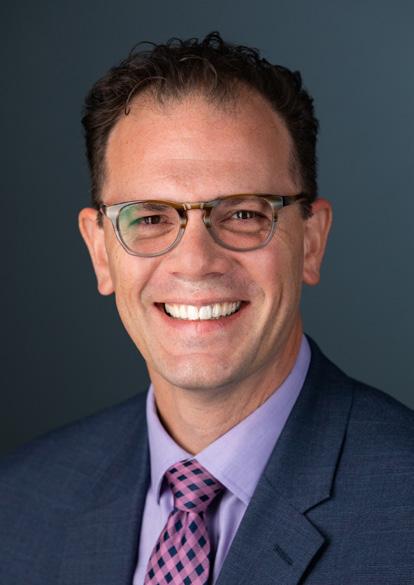
CHARLES BANKART Senior Internationalization Officer
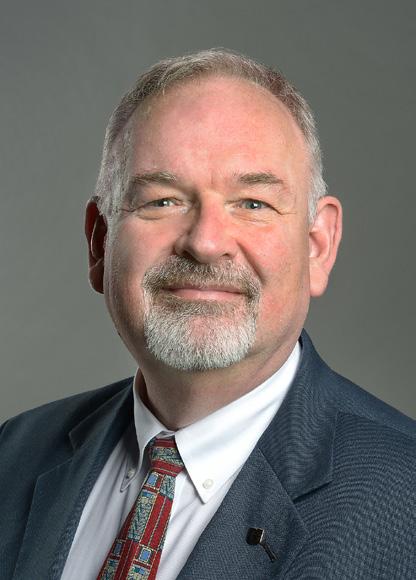
Mark Algren Interim Director of Applied English Center
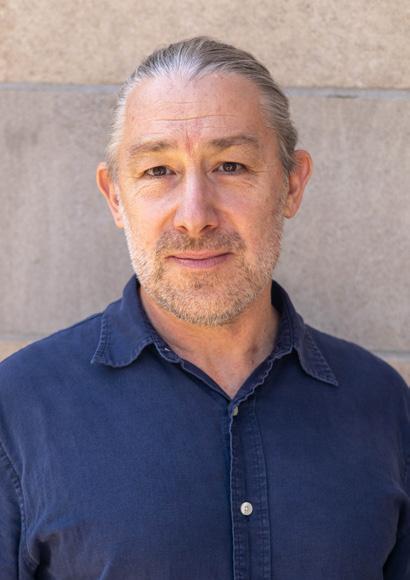
GLENN ADAMS Director of Kansas African Studies Center
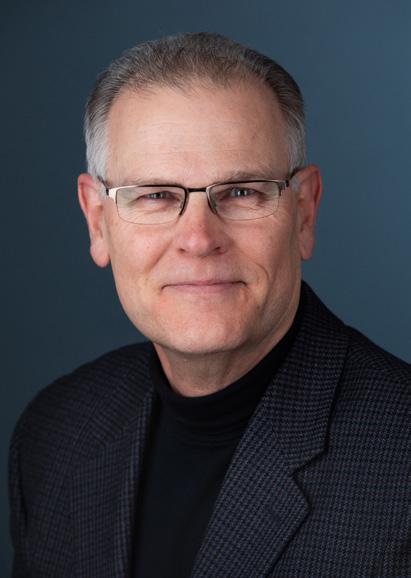
JOE POTTS
Associate Vice Provost for International Innovation, Development and Strategic Partnership
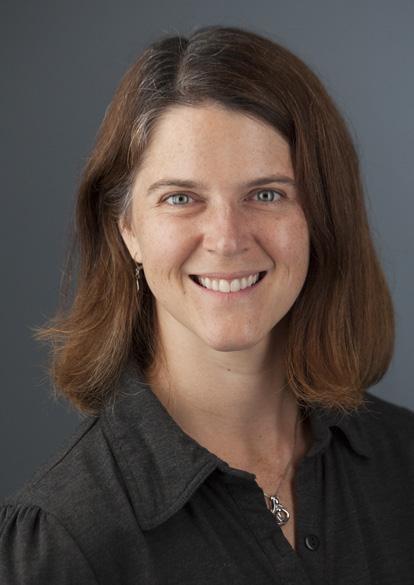
ANGELA PERRYMAN Director of Study Abroad & Global Engagement
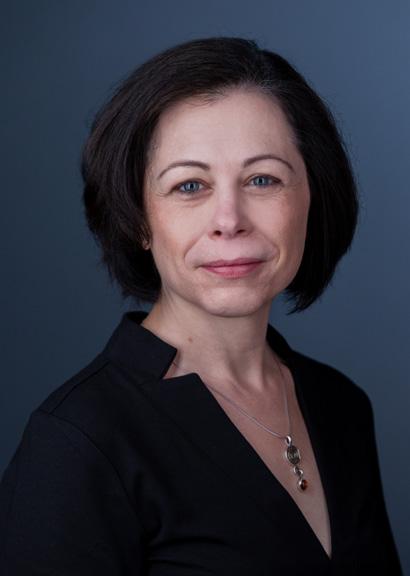
ROBERTA POKPHANH
Associate Vice Provost for International Administration & Student Success
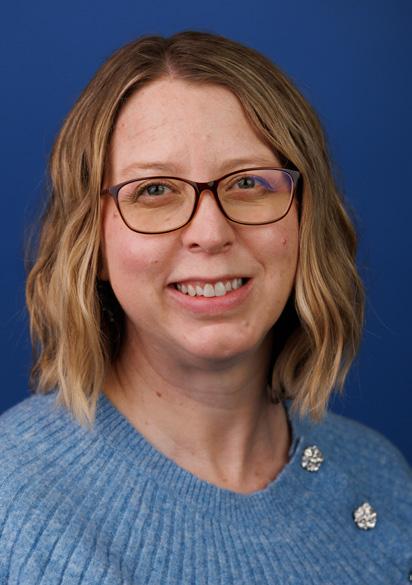
GOULD Interim Director of International Short Programs
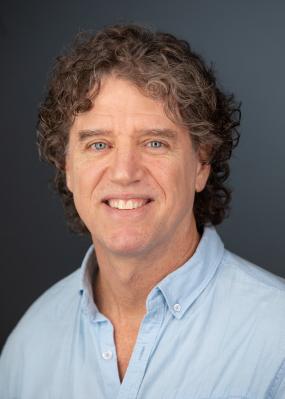
BRENT METZ Director of Center for Latin American and Caribbean Studies
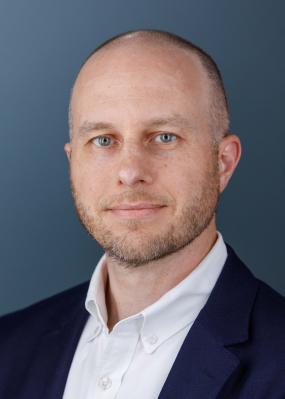
ERIK SCOTT Director, Center for Russian, East European & Eurasian Studies
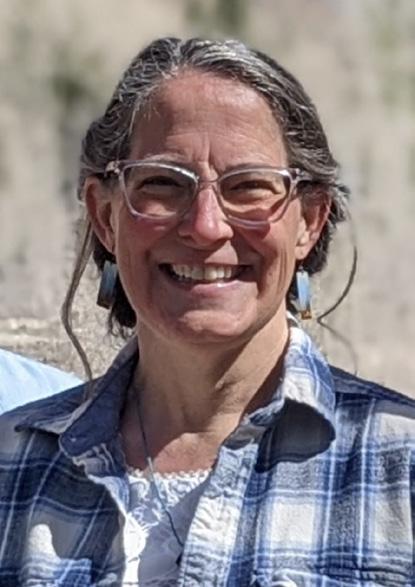
LYNNE VANAHILL Director of International Support Services
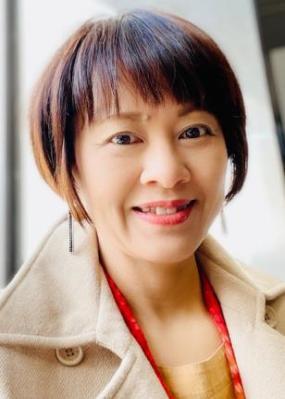
AKIKO TAKEYAMA Director of Center for East Asian Studies
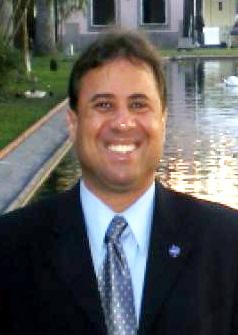
TOSTA Director of Center for Global & International Studies
In recognition of her extensive collaboration and connection with international scholars in Eurasia and Central Asia, Mehrangiz Najafizadeh, associate professor of sociology, received the 2023 George and Eleanor Woodyard International Educator Award this spring.
In the past 20 years, Najafizadeh has received two Fulbright Scholar and two Fulbright Senior Specialist awards to Azerbaijan and has built institutional partnerships in that region.
The award also honors Najafizadeh’s 30-year association with the Center for Latin American & Caribbean Studies and her work with the centers for Russian, East European & Eurasian Studies and Global & International Studies as well as her excellence in teaching and her commitment to incorporating international and crosscultural perspectives into the classroom.
“Dr. Najafizadeh has devoted her career to teaching and mentoring, research and service related to international issues. Her commitment to the internationalization of the curriculum and to enhancing the international perspective of students represents the ideals of the Woodyard International Educator Award,” wrote Joane Nagel, University Distinguished Professor of Sociology, in a nomination letter.
Najafizadeh earned her master’s degree and doctorate at KU and began teaching as an associate professor in 1993, the same year she was named associate director of CLACS. She held the position for six years and has been a pillar of Latin American and Caribbean studies and among the center’s top faculty contributors since then, noted Brent Metz, director of CLACS and professor of anthropology.
“She has made a tremendous impact on our center, sacrifices for Latin Americanist students across campus, and has much to do with its Title VI successes over the decades,” Metz wrote in a nomination letter.
Najafizadeh’s research has centered on Eurasia, where she traveled to Azerbaijan as a Fulbright Scholar in 2004 and 2022 and as a Fulbright Senior Specialist in 2005 and 2008.
Saadat Aliyeva, rector of Azerbaijan University, noted that university colleagues were so impressed with Najafizadeh as a recent Fulbright Scholar that they encouraged her to apply for another grant so she could return and are looking to collaborate further with KU.
“Her international and global perspective, teaching style, research activities and her mentoring of our students have enriched our university’s mission of internationalization of the curriculum and educational programs,” Aliyeva wrote in a nomination letter.
Najafizadeh has also led efforts to develop international partnerships with Azerbaijan’s Khazar University and Baku State University and is a founding
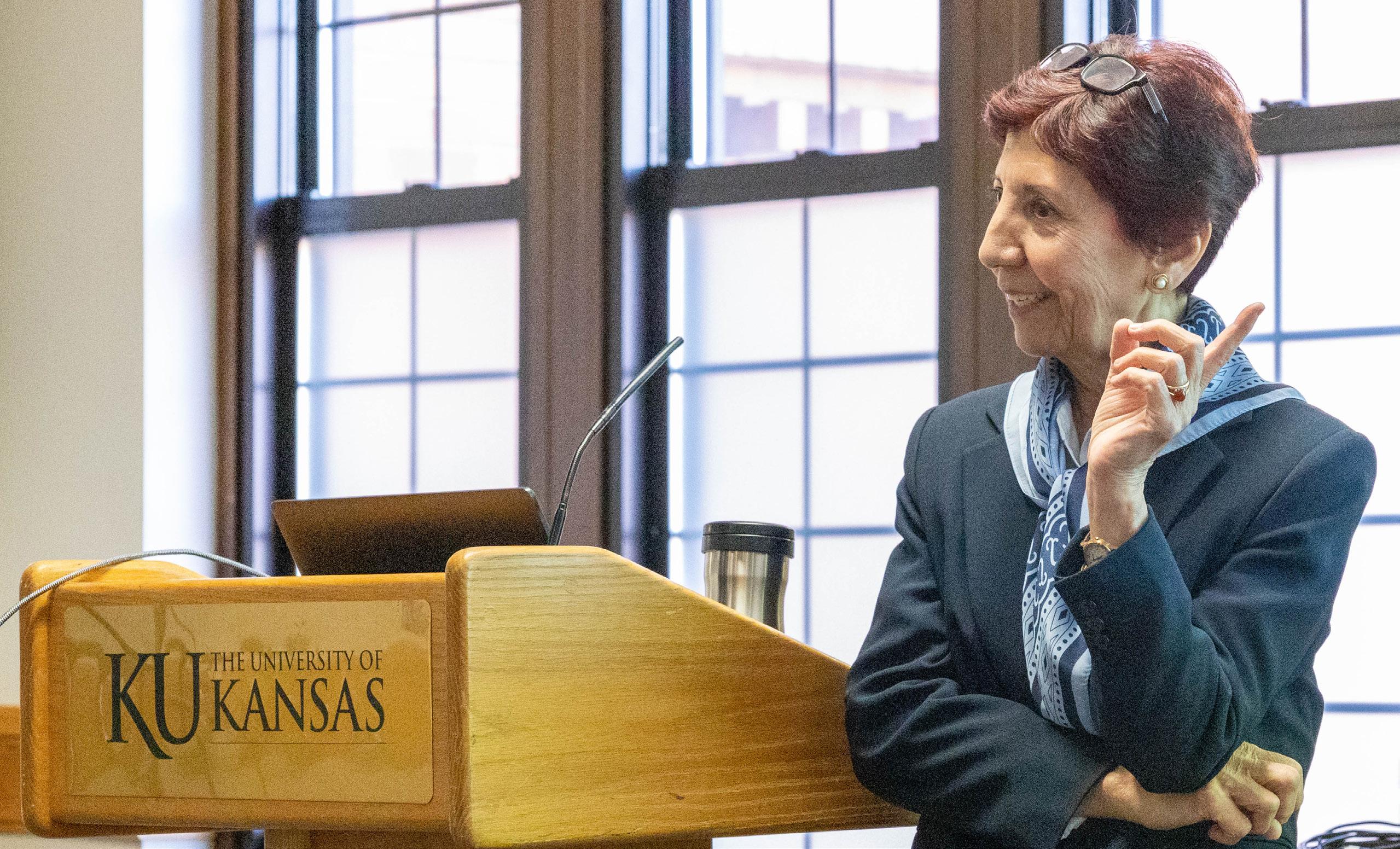
Mehrangiz Najafizadeh, center right, stands with Megan Greene, selection committee chair and professor of history; Charles Bankart, senior internationalization officer; and Eleanor Woodyard.
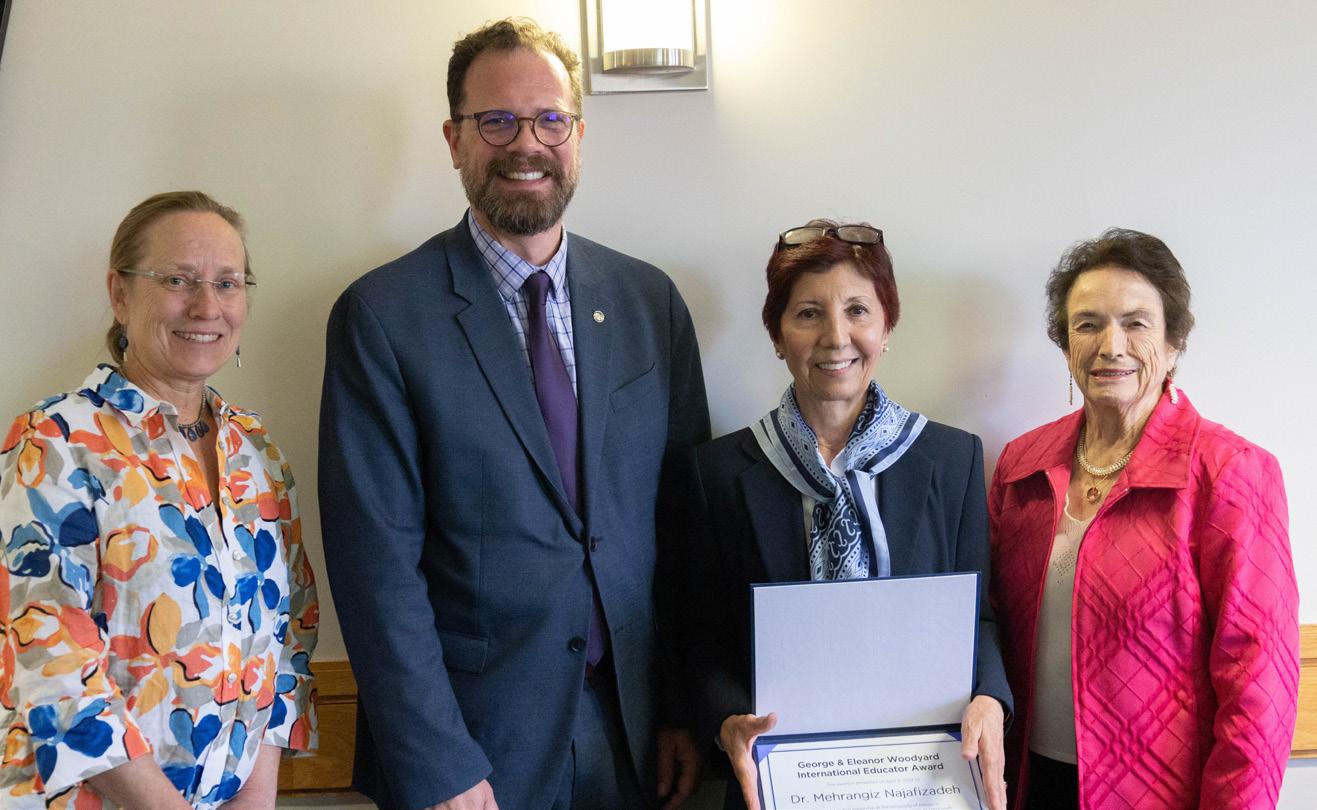
member of the American Research Institute of the South Caucasus Azerbaijan Research Center.
Recognized by scholars globally, Najafizadeh’s research focuses on gender, religion, culture, and internally displaced persons and refugees from the NagornoKarabakh War.
In her nomination letter, Linda Lindsey, senior lecturer at Washington University in St. Louis and professor emerita at Maryville University of St. Louis, noted that Najafizadeh’s ability to speak the Azerbaijani language fluently and her in-depth cultural knowledge has allowed her to connect with women who are refugees in their homeland.
“These women offer narratives that few researchers have uncovered. Dr. Najafizadeh displays the essential cultural sensitivity to effectively dialogue with women on such difficult issues,” Lindsey wrote.
Najafizadeh and Lindsey co-edited the anthology “Women of Asia: Globalization, Development, and Gender Equity,” which contained 32 original chapters from 40 scholars representing countries across Asia. Najafizadeh, as the lead co-editor of the anthology, wrote the chapter “Women in Azerbaijan: Decades of Change and Challenges.”
“I cannot imagine a better partner than Dr. Najafizadeh for academic rigor as we navigated this challenging but successful process,” Lindsey wrote.
Multiple nominators also highlighted Najafizadeh’s dedication to students. Najafizadeh has been recognized with 15 teaching and mentoring awards during her time at KU and has served as a chair or member of 126 master’s and doctoral student committees.
Najafizadeh has made extensive contributions to KU’s mission of internationalization, Nagel noted, through her teaching of such courses as Comparative Societies for undergraduates and graduate seminars on globalization, development, gender and social change.
“She seeks not only to provide core knowledge but also create a learning environment where students are inspired to explore alternate perspectives and theoretical lenses to examine issues of international significance,” Nagel wrote.
Father Michael Hermes, vicar for Hispanic ministry in the Archdiocese Kansas City in Kansas, believes taking Najafizadeh’s graduate seminar Global Social Change and Development had a profound impact on how he serves
the Latin American immigrant community and made him a more effective priest.
“It helped me understand better the push and pull factors of migration and helped me to focus more attention on gender roles and to consider the immense pressure on family life,” Hermes wrote in a nomination letter.
“DR. NAJAFIZADEH IS NOT MERELY A TEACHER; SHE IS A MENTOR, A GUIDE AND A SOURCE OF INSPIRATION,”
- MEREDITH CHURCH PIPES, FORMER STUDENT
Meredith Church Pipes, former student and current global and civic engagement specialist at Walker College of Business at Appalachian State University, recalled in her nomination letter the essential role Najafizadeh played in guiding her through the thesis process, helping her choose lines of inquiry, narrow her focus and hone in on important themes.
“Dr. Najafizadeh is not merely a teacher; she is a mentor, a guide and a source of inspiration,” she wrote.
“Her commitment to fostering international awareness, cross-cultural understanding and academic excellence is noteworthy.”
In a nomination letter Lisa-Marie Wright, former student and current associate teaching professor of sociology, noted that Najafizadeh is one of the most knowledgeable, devoted researchers and educators she has encountered. Wright highlighted that Najafizadeh inspires students to broaden their knowledge and further their understanding of issues at the intersection of gender and global politicaleconomic development.
“I have experienced first-hand the extraordinary amount of labor and effort that she puts into mentoring her students and the deep intellectual and emotional connections she forges with her students,” Wright wrote.
The late George Woodyard, the first dean of international studies, and his wife, Eleanor, endowed the award, which KU International Affairs coordinates. The award includes a $1,000 stipend.
■ Christine Metz Howard
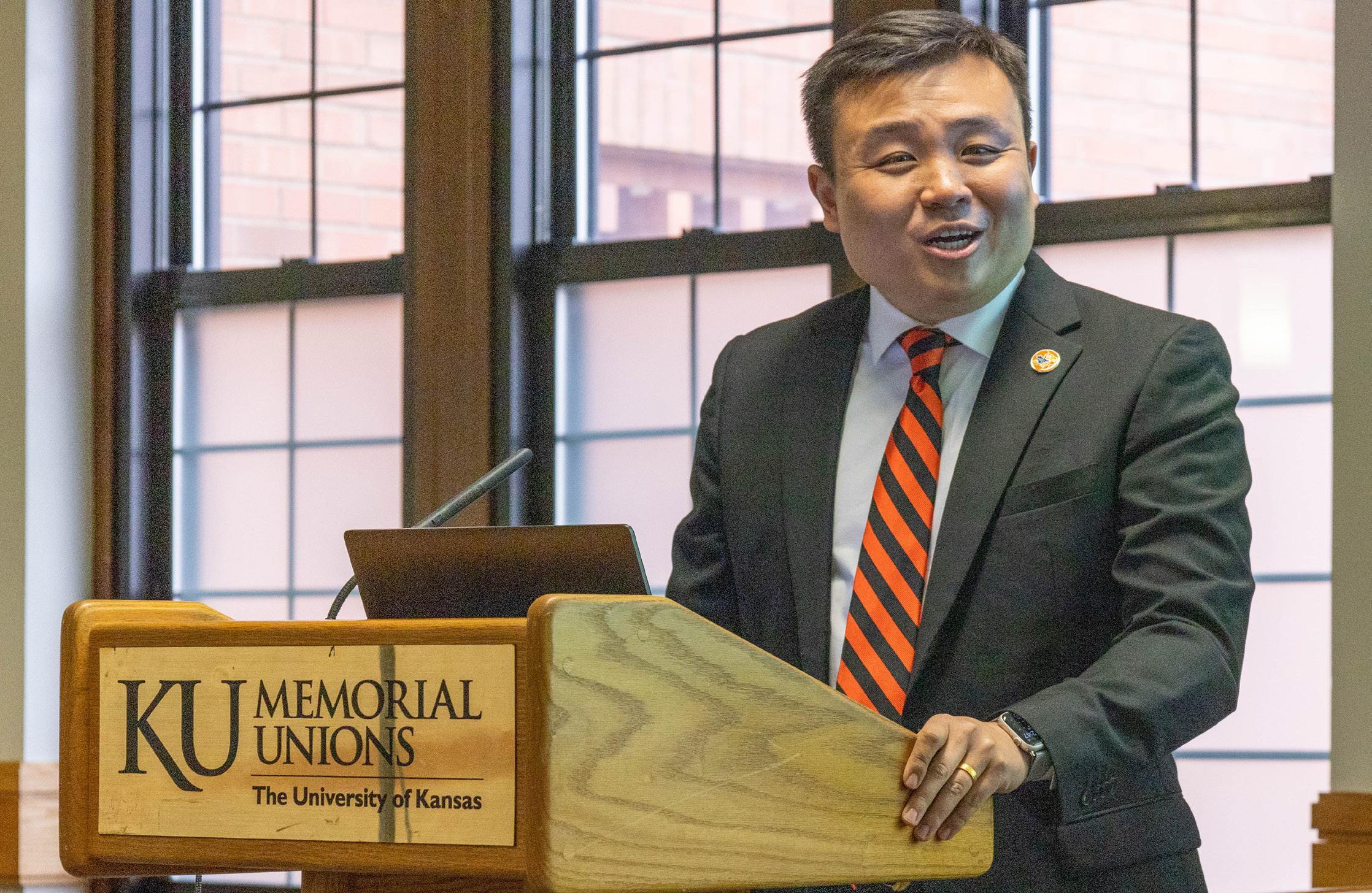
Recognized for innovation in incorporating international education in the classroom, Jack Zhang, assistant professor of political science, was the inaugural recipient of the KU International Affairs Advisory Board International Teaching Award this spring.
The award honors KU faculty members who have provided outstanding and sustained leadership in international education through teaching, advocacy and mentorship. In particular, the selection committee was impressed with the international lens and experiential learning opportunities that Zhang has brought to his courses, along with his commitment to mentorship and research.
“In a short time, Jack Zhang has had a tremendous impact on the way we teach international material at KU, the way we bridge research and teaching, and the way we collaborate across disciplines when we do internationally engaged work,” wrote Melissa Birch, associate professor of international business, in a nomination letter.
Zhang, who earned his doctorate at the
University of California San Diego, came to KU in 2019.
An expert on U.S.-China relations and the role of business in international politics, Zhang is also the interim associate director of the Center for East Asian Studies. During his time at KU, he has taught introduction to international politics and foreign policy analysis and developed four Asia-related political science courses that are cross-listed with East Asian studies.
In his nomination letter, John James Kennedy, chair of the Department of Political Science, noted that Zhang teaches some of the most popular courses in the department.
Through grants and collaboration with faculty from other departments, Kennedy wrote that Zhang “has developed innovative ways to engage students in international relations and East Asian studies.”
Through grants from the centers for Teaching Excellence and East Asian Studies, Zhang has made international relations more relatable to students by building writing assignments around
a U.S.-China trade war simulation or country risk analysis research project.
“Students seem to really engage in these opportunities to dive deeper into East Asia through role-playing, research and classroom activity,” wrote Akiko Takeyama, CEAS director and professor of women, gender & sexuality studies, in a nomination letter.
“PROFESSOR ZHANG HAS CREATED A UNIQUE EXPERIENCE FOR STUDENTS TEACHING THEM TO LOOK BEYOND THE HEADLINES AND HOW TO EVALUATE THE SOCIAL AND POLITICAL IMPLICATIONS OF INTERNATIONAL POLICIES,"
- JOHN JAMES KENNEDY, CHAIR OF THE DEPARTMENT OF POLITICAL SCIENCE
Zhang integrates teaching and research in his Trade War Lab, which seeks to understand the U.S.-China trade war and its effect on heartland communities through a bottom-up, data-driven, firm-centric approach. The lab allows undergraduate and graduate students to conduct collaborative research on policy-relevant topics by working in teams to map out global supply chains, survey business leaders, and collect data on tariff exclusions and congressional bills.
“Professor Zhang has created a unique experience for students teaching them to look beyond the headlines and how to evaluate the social and political implications of international policies,” Kennedy wrote.
Since its inception, the Trade War Lab has employed dozens of undergraduate students and five graduate students and is supported by more than $500,000 in internal and external grants.
Ten of Zhang’s undergraduate research assistants have received Undergraduate Research Awards. Zhang has also co-written multiple papers with his graduate students.
Nominators also praised Zhang’s mentorship. Takeyama pointed to Zhang’s work with students from KU’s Emerging Scholars program, which supports lowincome students’ transition into college by providing research opportunities in their first year. In 2023, Zhang received the Grant Goodman Undergraduate Mentor Award for his research mentorship.
He advises students in political science, global & international studies, economics and business who focus on East Asia in their theses or capstone projects.
“Many students in these disciplines are not necessarily trained to study East Asia or employ cross-cultural comparisons,” Takeyama wrote. “By working with Jack
and receiving his advice, some students expand their geographic scope to include other parts of the world, namely East Asia.”
Zhang created the Trade War Lab speaker series, which has brought to KU more than 20 scholars from around the world in partnership with various campus cosponsors such as CEAS and the University Career Center. Along with the speaker series, Zhang has co-hosted the past three local China Town Hall events, which follow the national town halls organized by the National Committee on U.S.-China Relations. During his time at KU, Zhang has forged local partnerships with the International Relations Council, Dole Institute of Politics, World Trade Center of Kansas City and Kansas City Chamber of Commerce to promote global awareness.
International issues have also been a focus of Zhang’s research. He has published articles, book chapters and think tank reports on the U.S.-China Trade War. He is working on a book manuscript about the national security implications of economic interdependence with China.
Zhang’s scholarship has been recognized nationally. In 2023 he was one of 20 leading China specialists selected as a fellow for the Public Intellectuals Program through the National Committee on United States-China Relations. In 2021 Zhang was named a Wilson China Fellow through the Woodrow Wilson International Center for Scholars’ Asia Program, in conjunction with the Kissinger Institute on China and the United States. He has been interviewed by Bloomberg, CNBC, NPR, CGTN, Arirang TV, Strait Times and South China Morning Post as well as KU’s “When Experts Attack!” podcast.
“The combination of the timeliness of the research topic and the extent of Jack’s scholarly network has greatly enhanced KU’s visibility in the media and academia,” Birch wrote.
Financially supported by the KUIA Advisory Board, the international teaching award comes with a $1,000 stipend.
■ Christine Metz Howard
As a leader in equitable and collaborative international research and education, Rafe Brown, professor of ecology & evolutionary biology, was named the inaugural recipient of the KU International Affairs Advisory Board International Research Award last fall.
The award recognizes faculty members who provide outstanding leadership in international education through their research and discovery efforts.
Brown, curator-in-charge of the Herpetology Division of the KU Biodiversity Institute & Natural History Museum, largely conducts research in the Philippines, Indonesia and the Solomon Islands, but he has collaborated on biodiversity research in India, northern Melanesia, the tropical Americas and central Africa.
This spring Rafe received a Fulbright U.S. Scholar Award to spend a year in the Philippines conducting fieldwork to sample amphibians and reptiles.
By fostering equitable and mutually beneficial international research collaborations, Brown has “set a high bar” in international education, according to a nomination letter written by Biodiversity Institute faculty Jorge Soberón and A. Townsend Peterson and Department of Ecology & Evolutionary Biology chair Lena Hileman.
“This model of ‘full partnership’ in international education represents the future of science, particularly in biodiversity science,” they wrote.
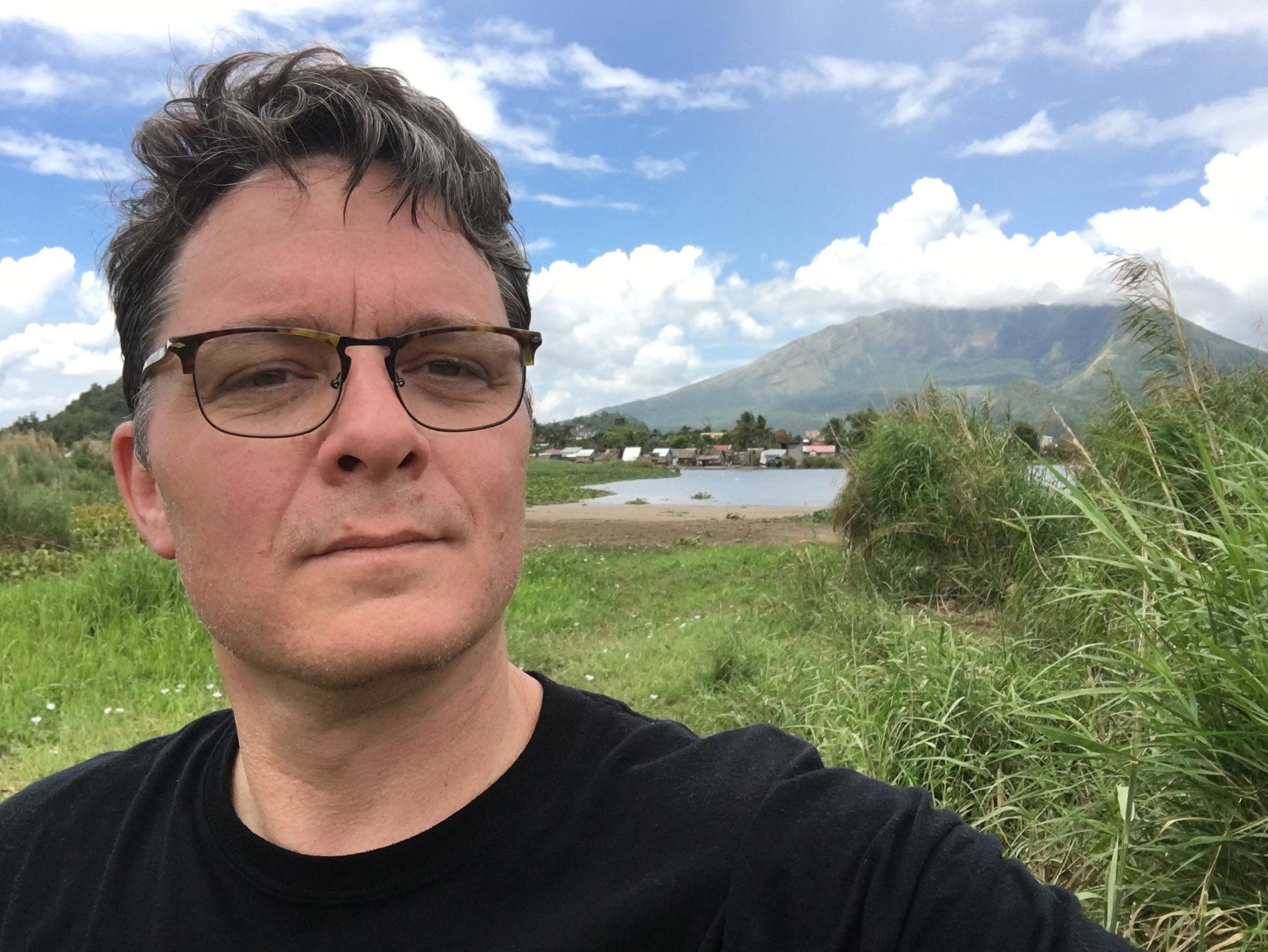
Courtesy
For more than two decades, Brown has studied the evolution, distribution, dispersal and diversity of land vertebrates in the archipelagos of the Philippines, Indonesia and the Solomon Islands. As part of that work, Brown has led field expeditions to the Philippines, which have included KU undergraduate and graduate students and an equal number of Filipino students.
His decades-long record of taking KU students abroad to participate in international field research has provided “mind-broadening experiences with a very different set of people cultures and landscapes,” noted members of the Biodiversity Institute and ecology & evolutionary biology department.
Meanwhile much of Brown’s teaching, mentorship and instruction to Filipino students is done in fluent Tagalog, the official language of the country, which nominators noted is a testament to his dedication to international education.
Brown has mentored an entire generation of Filipino students in herpetology and biodiversity conversation, according to a nomination letter from Phillip Alviola, associate professor at the University of the Philippines Los Baños. Prior to Brown’s arrival to the Philippines, herpetology was an almost unknown field in the country.
“We are now seeing budding and established herpetologists and wildlife biologists in many parts of the Philippines, and they were at some point mentored by Rafe,” Alviola wrote.
Brown has mentored 17 doctoral students, six postdoctoral researchers and 39 undergraduate students. Many of these mentees have been international students from around the world.
Among them is Marites Sanguila, who came to the Biodiversity Institute as a visiting doctoral student in 2009 and went on to establish an institute dedicated to biodiversity science at Father Saturnino Urios University.
“That major experience is transformative for a Filipino student like me,” Marites Sanguila wrote in a nomination letter. “It armed me with an excellent knowledge of Philippine amphibians and reptiles, and social skills to form networks for equitable collaborations.”
In 2019, Brown co-developed a three-week course on biodiversity science, which was funded by the Philippine government and brought Brown and seven members of his lab to teach at Sanguila’s institute. The course paired KU and Filipino students on research projects, provided in-person educational opportunities to 40 undergraduates at Urios and was livestreamed to hundreds of participants throughout the country.
Most recently, Brown has collaborated with Partido State University and Ateneo de Naga University to study the biodiversity along a rare, continuously forested habitat in the Caramoan Peninsula. The area extends from the volcanic peak of Mount Isarog through the pristine coastal forests of Caramoan National Park to the Pacific Ocean’s reefs, sea grasses and small islands.
Michael Clores, dean at Partido State University, noted an overarching goal of the project is to increase appreciation of Philippine biodiversity and promote conservation.
“We joined the programs (Brown) conceived and initiated because we have witnessed how he is dedicated to the understanding and sustainable management of Philippine terrestrial vertebrate biodiversity,” Clores wrote in his nomination letter.
He went on to note that as the Philippines leading herpetologist, Brown has “contributed a lot to our quest to understand biodiversity.”
Michael Cuesta, director of the Social Science Research Center at ADNU, noted the project provided opportunities for faculty and students to engage in field-based research and publish their work in journals, paved the way for the discovery of previously unknown herpetofaunal species and improved local biodiversity research.
“Through Dr. Brown’s companionship and guidance, ADNU was able to strengthen and enhance its role in local biodiversity research, advocacy and governance by bridging working relationships with other higher education institutions, local government units, natural resources management and protection agencies, and with the people in small and remote communities in the country,” Cuesta wrote.
While in the Philippines on his Fulbright award, Brown will be based at PSU, which has campuses in the city of Goa and the coastal town of Caramoan, a day’s drive south of Manila. Additionally, Brown will teach a biogeography and field sampling methodology course at PSU while conducting research on a multidisciplinary project with Cuesta, who is based at AdNU in Naga City on Luzon Island.
The Fulbright award has given Brown his “dream sabbatical,” providing an opportunity to remain in the Philippines through the monsoon season to witness the weather system’s effect on amphibian activity in the rainforests.
“This opportunity means the world to me and is something I have been imagining for more than two decades,” Brown said
Charles Bankart, senior internationalization officer, noted that Brown’s international research and education bring into focus the importance of internationalization at KU.
“His work as a scholar and the global perspective he brings to his research and teaching embody KU’s vision as an exceptional learning community that lifts each member and advances society,” Bankart said.
Financially supported by the KUIA Advisory Board, the international research award comes with a $1,000 stipend.
■ Christine Metz Howard
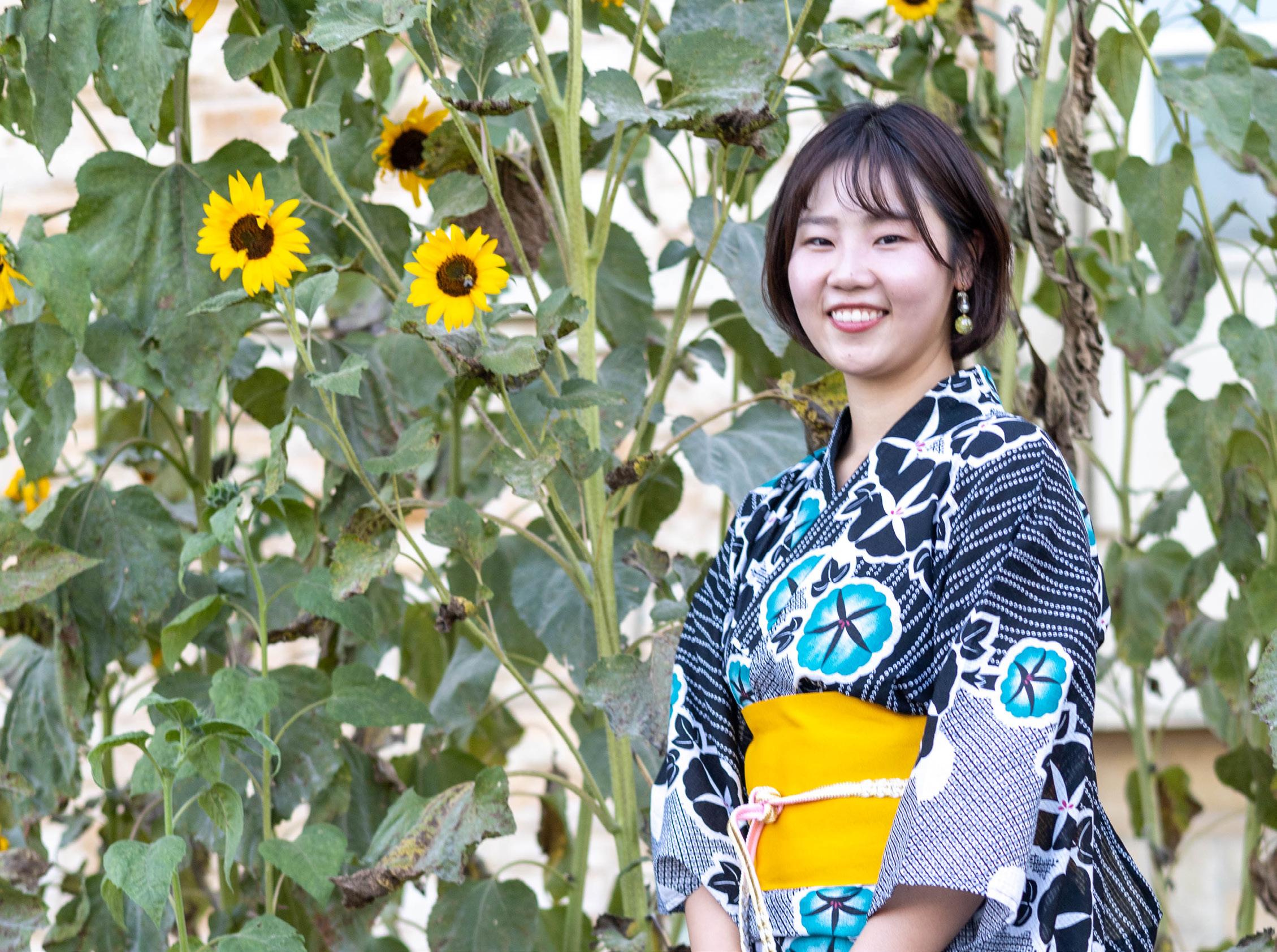
In 2017 Miki Shono was a Japanese student with the Kansai University program struggling to make connections with Americans in her first semester at KU. A graduate teaching assistant invited her to observe a Japanese language class, which turned out to be a pivotal moment for forming friendships with Americans and her career path.
“I didn’t know there were a lot of American students who study Japanese or were interested in Japan, so that made me think I want to teach Japanese in the future,” Shono said. “It looked so fun.”
Seven years later, Shono is teaching Japanese as a GTA at KU as she pursues a master’s degree in East Asian languages and culture.
“I always try to show gratitude for all the connections
I get,” Shono said. “Without meeting the GTAs, I maybe would not be here right now.”
Shono, who grew up in Kyoto, Japan, dreamed of living in a foreign country. She studied abroad in Canada during high school and then chose to attend Kansai University in Osaka because of its international exchange programs, including one with KU.
Managed by International Short Programs, the Kansai University program is nine months long and allows students to study English at the Applied English Center, take KU academic courses in the fall and participate in cultural and work experiences.
During her first few months at KU, Shono was improving her English skills at the AEC and found it difficult to communicate with American students. She had made several friendships with GTAs in the Department of East Asian Languages and Cultures, one of whom invited her to observe his Japanese language class.
At that class, Shono was introduced to American students and soon began participating in a language exchange program, where American students would practice their Japanese with her for 30 minutes and she would practice her English with them for 30 minutes.
Her connections to American students continued to
grow when she changed dorm rooms and was placed with an American roommate, who became a good friend.
“It was a really good opportunity for me to communicate with an American student and we still keep in touch,” Shono said.
After completing the exchange program at KU, Shono returned to Kansai University and graduated in 2020 with a degree in English and minor in Chinese. After graduation she began working as a flight attendant, where she served on domestic and international flights to the United Kingdom, United States, Germany and Vietnam.
Shono enjoyed using her English skills on international flights, but after three years was ready to explore other career opportunities.
“I decided to apply to the KU program and that I wanted to teach Japanese to American students,” Shono said.
Shono began her graduate program at KU in fall 2023. This semester she teaches the listening and speaking section for two classes of intermediate-level Japanese. She enjoys the connection she forms with students and aims to support them as much as possible.
“My goal is to teach Japanese to those who have never studied it before or who have never been to Japan, and then I want them to come to Japan,” Shono said.
At KU Shono finds ways to share Japanese culture and traditions through volunteering with the Japanese Student Association at events like the Japanese Summer Festival in Kansas City and the Mid-Autumn Festival, hosted by the Center for East Asian Studies and Student Union Activities.
“Even though schoolwork and teaching are really hard and make me busy,” Shono said, “I try to go outside and get to know lots of people that may open my future.”
■ Christine Metz Howard
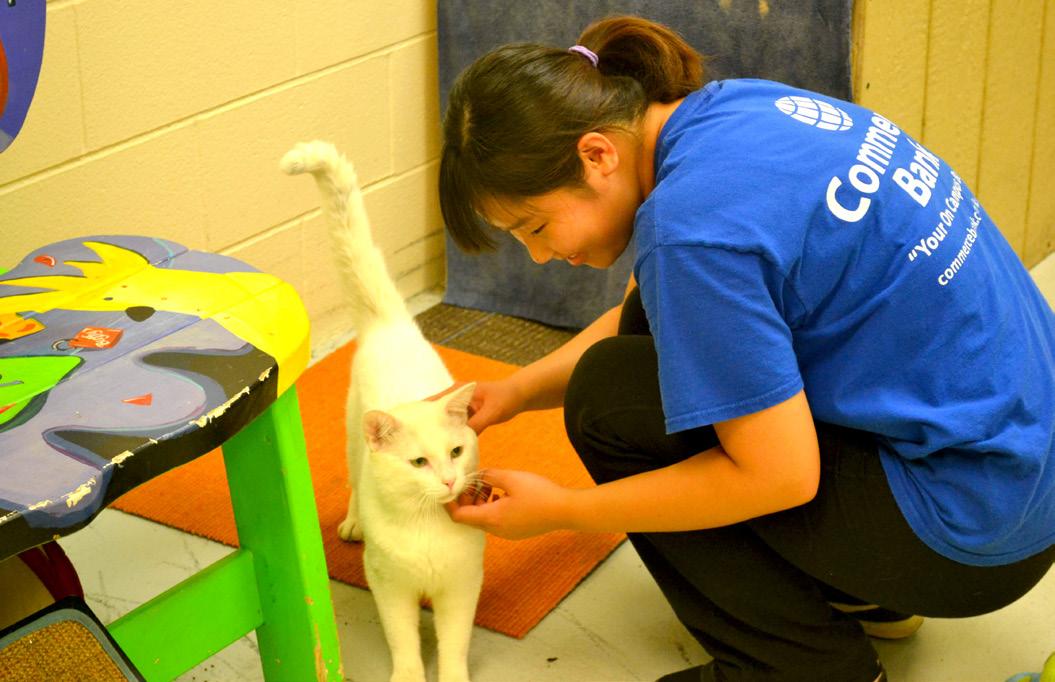
INTERNATIONAL STUDENTS 2023-2024

1,743 international students in fall 2023 3.4% of KU undergraduate students 6.8% of KU total student population
19.8% of KU graduate students
TOP 2% OF U.S. HIGHER EDUCATION INSTITUTIONS FOR THE NUMBER OF STUDENT AND EXCHANGE VISITORS AT KU
316 international students on F-1 post-completion optional practical training visas
7 International students on J-1 academic training visas
INTERNATIONAL SCHOLARS
120 international scholars served on J-1 exchange visitor visas


5 Professors 96 Research Scholars
19 Short-term Scholars
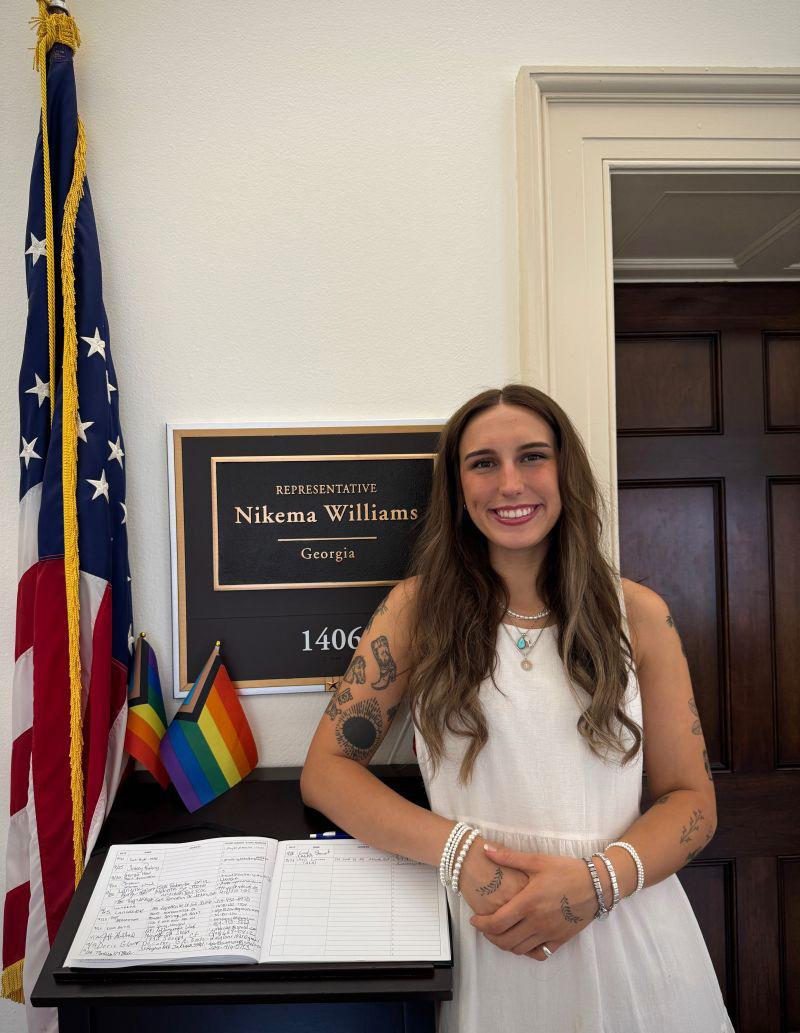
FPhoto: Courtesy of Natalie Miller
or Natalie Miller the seeds of her thesis began to germinate while standing in Berlin’s DDR Museum, which depicts life in former East Germany with displays of covert listening devices, clothing and recreated tower block apartments.
Miller was abroad with KU’s Summer Language Institute in Holzkirchen, Germany. The group had already visited Sachsenhausen, a major Nazi Germany concentration camp just north of Berlin; and the site of a former political prison run by the East German Communist Ministry of State Security. As a political science and German major, Miller stood in the museum trying to
connect what she was seeing with what she had learned about the current far-right Alternative for Germany political party.
“I just couldn’t fathom how all of this could have happened,” Miller said. “How could this have happened, and we are seeing a resurgence in right-wing extremism in Europe today?”
That was the question that carried Miller through two bachelor’s degree theses, one in political science and the other in German. And it will be the one that she will take with her as she enters a master’s degree program at the University of Regensburg this fall.
“I realized how much I could talk about European politics, German politics, extremism and polarization that I think I want to, at least in the latter half of my life, be a professor and teach these things,” Miller said.
From Olathe and the granddaughter of German immigrants, Miller, who graduated in 2023, has always had an interest in Germany.
Miller began her college education at Fort Hays State. While there, she found work at the Hays Regional Airport, where she did everything from pulling bags out of cargo holds to directing planes to their gates.
The job came with the perk of air travel, so Miller visited Germany several times. After her second year at Fort Hays, she decided to transfer to KU with one of the reasons being a desire to pursue German. She also joined the Kansas Rowing team.
After her summer with the Holzkirchen program, Miller knew she wanted to return to Germany to study full time. So, she spent the spring of her fifth year at the University of Regensburg, which has a deep and longstanding partnership with KU.
To support her semester abroad, Miller received a Collins Scholarship as well as the Lynne Hinkel Lipsey Memorial Travel Fund.
“The funding made the experience possible for me,” Miller said. “It was a dream, and the support made it a reality.”
While there, Miller formed a close-knit friend group with other exchange students from around the world. They learned how to open German bank accounts together, traveled throughout Germany and before her return they even celebrated Fourth of July with watermelon and hotdogs along the Danube River.

“I’m going to look back on those memories for the rest of my life,” Miller said.
When Miller returned from Germany energized and ready to pursue a master’s degree, she was advised to take a break and gain some work experience before returning to school. Putting her political science degree to use, she interned for Kansas Rep. Sharice Davids, working in the district office that fall. With a little real world political experience, Miller decided she was ready to apply for jobs in Washington, D.C.
In February, she began working in the office of Georgia Congresswoman Nikema Williams. As a scheduler, Miller arranged everything from dentist appointments to meetings with the vice president.
This summer, Miller took what she had learned on Capitol Hill, along with a bolstered resume and refined interview skills, and applied to the University of Regensburg. She was drawn to its graduate school for its mostly free tuition, programs taught in English, high quality of life and the possibility of working in Germany after graduation.
This fall she’ll begin a two-year program in European studies with an emphasis in politics, culture and law. Among the list of potential thesis topics is extremism in Europe.
“I knew I could definitely take that and run with it,” Miller said.
■ Christine Metz Howard
EDUCATION ABROAD 2023-2024

1,280 total students abroad
62 countries visited

1,125 students in study abroad programs
155 students in university affiliated travel
102 Global Awareness Program Certificates awarded

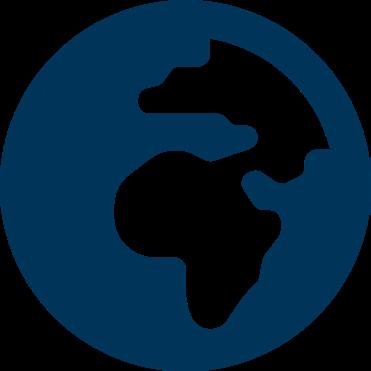
17 Benjamin A. Gilman International Scholarships awarded
TOP 6% OF U.S. HIGHER EDUCATION INSTITUTIONS FOR THE NUMBER OF STUDY ABROAD PARTICIPANTS.
- 2023 OPEN DOORS REPORT ON INTERNATIONAL EDUCATIONAL EXCHANGE.
Font Awesome
KU Internationals Affairs is continually amazed by the generosity of our donors and their collective impact to provide transformative international education opportunities at KU. This past academic year, more than 200 donors supported KU International Affair’s work, enabling us to sustain and expand our mission.
Mackenzie L. Aden
Abigail M. Ambrose & Charles Ambrose
Giselle L. Anatol, PhD
Anna R. Anderson
Billie D. Archer
Jane E. Averill & Bruce Osen
Charles A. S. Bankart, PhD
Peter Bankart & Brenda Bankart
James F. Barnes
Bernice G. Beckman & Preston Beckman
Casey R. Biggs & Jacklyn M. Biggs, PhD
Melissa H. Birch & Russell E. Smith
Sarah L. Bluvas
Janice A. Bolinger
Kimberly G. Booth & Andrew G. Booth
Barbara Bradley
Ruth Bradshaw
The Bramlage and Willcoxon Foundation
James E. Bredfeldt, MD
Larry A. Brey, PhD
Philip C. Brooks Jr. & Susan M. Brooks
Carol Ann Brown & Clifton L. Brown Jr.
J. Christopher Brown, PhD & Denise L. Perpich
Joan E. Budd, MD
G. Wayne Burge
William B. Burkett
Janet L. Buttery
Carver-Allmond LLC
Cynthia L. Caywood, PhD & David Hay
William D. Chapman
Margaret H. Childs, PhD
Robert J. Chudy & Young Hee Chudy
Martha J. Coffman & Patrick T. Curtiss
Bridget R. Compton
Alec Creighton & Christine H. Creighton
Josef K. Cunningham & Anne L. Tormohlen
RDML Jane Gilliland Dalton, JAGC,USN, Retired
Jeremy L. Daugherty & Dianne Ray Daugherty
Taras Dauzhenka & Liudmila Dauzhenka
Deborah Davies, PhD & Marc Lowenstein, PhD
M. Kendall Day & Danielle Baussan
Cat L. Diebel-Wilson
Vickie Fu Doll & David W. Doll
Michael J. Doudoroff & Elaine Tashiro Gerbert
Lindsay N. Douglas
Myrl L. Duncan
Marshall C. Eakin & Michelle Beatty-Eakin
Elizabeth Corley Edwards & Jordan B. Edwards
Andrea L. Eickholt
Lauren R. Erickson
Donald W. Faught
Kathryn E. Favrow
Jean Des Marteau Finch *
Raymond C. Finch, III
David M. Frey & Helen Hao Cheng
Natalie K. Friend
Gregory T. Frost
Gunda I. Georg, PhD
John H. Gilbert, MD & Ines Ascolese Gilbert
Aaron Gillespie
Shannon L. Green-Kingery
John M. Gurley
Beth M. Gurney
Patricia A. Haegelin-Hiatt & Roger L. Hiatt
Mark V. Hageman
Julie Chubbuck Hamel, PhD & Gregory L. Hamel, MD
Darci E. Hanna & Andrew J. Giessel
Sandra J. Hannon & Philip L. Hannon
James D. Harder
Tom H. Harper & Terri Erickson Harper
Marsha Smith Haufler, PhD & Christopher H. Haufler, PhD
Kelley Hayden, PhD
Steven E. Hein & Dianna L. Mourn
Conrad M. Henderson
Michael M. Heydari
Harley R. Hill
Gail M. Hinkel
Constance Howison Hollenberg & Shannon K. Orr
Nicole Horton
Erin M. Hubert
Stephen R. Hughes & Mary Anne Hughes
Sara Jackson
Charles A. Jefferis, III
Daphne A. Johnston & Pok-Chi Lau
James K. Jones
Maurice Joy & Betsy Joy
Robert S. Kafalenos
Tuakondja Kamatuka
Charles B. Kastner
Kristopher K. Keller & Kimberly Loeffert Keller
Glen Kemper
Jacqueline R. Kenny
Baris Kesgin, PhD
Steven J. Kidwell
Michael Kirkendoll, DMA & Mary A. Fukushima, DMA
Jill Kleinberg, PhD
Julie Peters Knudtson
Elizabeth A. Kuznesof
David F. Lambertson & Sacie Hooper Lambertson
Michael Z. Lawrence
Tracie D. Lewis
Susan H. Lindahl & Paul A. Lindahl Jr.
Richard D. Lipsey Jr.
James R. Lloyd, II & Ann Stueve Lloyd, PharmD
Mark R. Ludorf, PhD & Lynn M. Ludorf
David Mai
Loren M. Malone
J. Michael Maloney & Cynthia McNown Maloney
Nicholas J. Manoogian
Grace H. Marco
Jackson T. Martin & Sarah Jackson Martin
James I. Masters
Patrick A. Mawhinney
Dr. Bradley K. Mazon & Thomas E. Coates
Mark D. McBride & Beata McBride
Scott C. McCracken
Andrew P. McDonald
Ellen Scott McLean & David J. Lutz, PhD
Frederick A. Meier
Susan Vernon Meier
Erin Collins Menaker
Kristen McClintic Mercado
Joshua W. Mermis
Thomas E. Mertz
Christine M. Metz Howard
Cynthia Ulery Meyer
Marilyn K. Michael
Steven M. Mikinski & Tamara Coder Mikinski, PhD
Daniel N. Miller & Jadi K. Miller
John S. Miller & Rachel B. Miller
Lynn H. Miller, PhD
Andreas Moller
Diedre Emery Moore
Mehrangiz Najafizadeh, PhD
Alexandra C. Navarro
Marilee Neale
Van H. Nguyen, PhD
Mark S. Norman
Edward J. O'Day
Amanda Thomas Ostreko, PhD
David C. Oswald
Louise Page Otero
Richard S. Paegelow & Chris Tang
Col. Breven C. Parsons
Christine Pederson
Angela M. Perryman & Michael J. Perryman
Cecile M. Petermann
Valerie L. Pierce, PhD
Ronna M. Pohlman
Roberta J. Pokphanh, PhD
Shannon Doyle Pope & Kenton Buege
Joe D. Potts, PhD & Sheryl Kulich Potts
Mark A. Praeger, MD & Sandra Kaiser Praeger
Lucy J. Price, PhD
Charles Ranson
Mary Raple
Gabriel D. Rebeck
Alyssa Reed
Claudia G. Reeder, PhD
Carol Sisson Regehr
Cori Roberts
Mark G. Roberts & Grace Chiu
Jean Hardy Robinson, PhD
Marilyn M. Roelse
Debora M. Roessler
Curtis E. Rohland
Janette Crawford Rudkin & Thomas A. Rudkin
Mary Ann Culwell Saul & Norman E. Saul
Norma K.J. Schilmoeller, PhD & Gary L. Schilmoeller, PhD
Steven M. Schnell, PhD & Lisa Kahn Schnell
Leslie McElfresh Schweitzer
Catherine M. Shafer
Raymond J. Shu
Shelley A. Skie
Lori Slater
Dale D. Slusser & Sherry D. Fowler, PhD
Kerry Lipsey Smalley & Jeffery C. Smalley
Ryan L. Smartt
Rev. Kenneth L. Smith
Amy Luiso Stadler
Ryan D. Stansifer
William B. Steele & Akiko Takeyama
Patricia Stewart
Celka K. Straughn
Masaki Sugiura
Summit's Steps Minerals, Inc.
Patrick Suzeau & Muriel Cohan
Marjorie E. Swann & William M. Tsutsui
Kimberly A.B. Swanson
Yoko Takahashi
Jessica Townsend Teague
Sara L. Thiele
Hannah M. Towns & Zachary R. Towns
Katie Trivilino
Christina J. Trotter
Emily J. Tummons
Britney T. Tyner
The Hon. Karen M. Uplinger
James K. Utt
Sara J. Van Dyke
Lynne Vanahill
Anne D. Wallace, PhD
Jean M. Wayne
Lisa F. Weeks & Dale E. Wheeler
David A. White
Allan W. Wicker, PhD & Edna B. Wicker
Scott F. Williamson & Angela M. Williamson
Sheree Welch Willis, PhD & Jeffrey M. Willis
Pubudu N. Wimalasiri
Juliann Crider Wisbrock
Sallie Pagels Wolf
Dustin T. Wolfe
Walter C. Womack & Sheri Seibert Womack
Richard D. Woods & Mary Linna Woods
*Indicates donor is deceased
Many thanks for the KU International Affairs Advsiory Board’s support and advocacy for internationalization.
Chair: Jean Hardy Robinson, PhD
Vice Chair: James D. Harder
Anna R. Anderson
Carol Ann Brown
G. Wayne Burge
Lesley Elwell
Roger L. Hiatt
Nicole Horton
Jill Kleinberg, PhD
David F. Lambertson
Jack Martin
Patrick A. Mawhinney
Richard S. Paegelow
Thomas A. Rudkin
Leslie McElfresh Schweitzer
Jessica Townsend Teague
1450 Jayhawk Blvd, Strong Hall, Room 300 Lawrence, KS 66045-7594
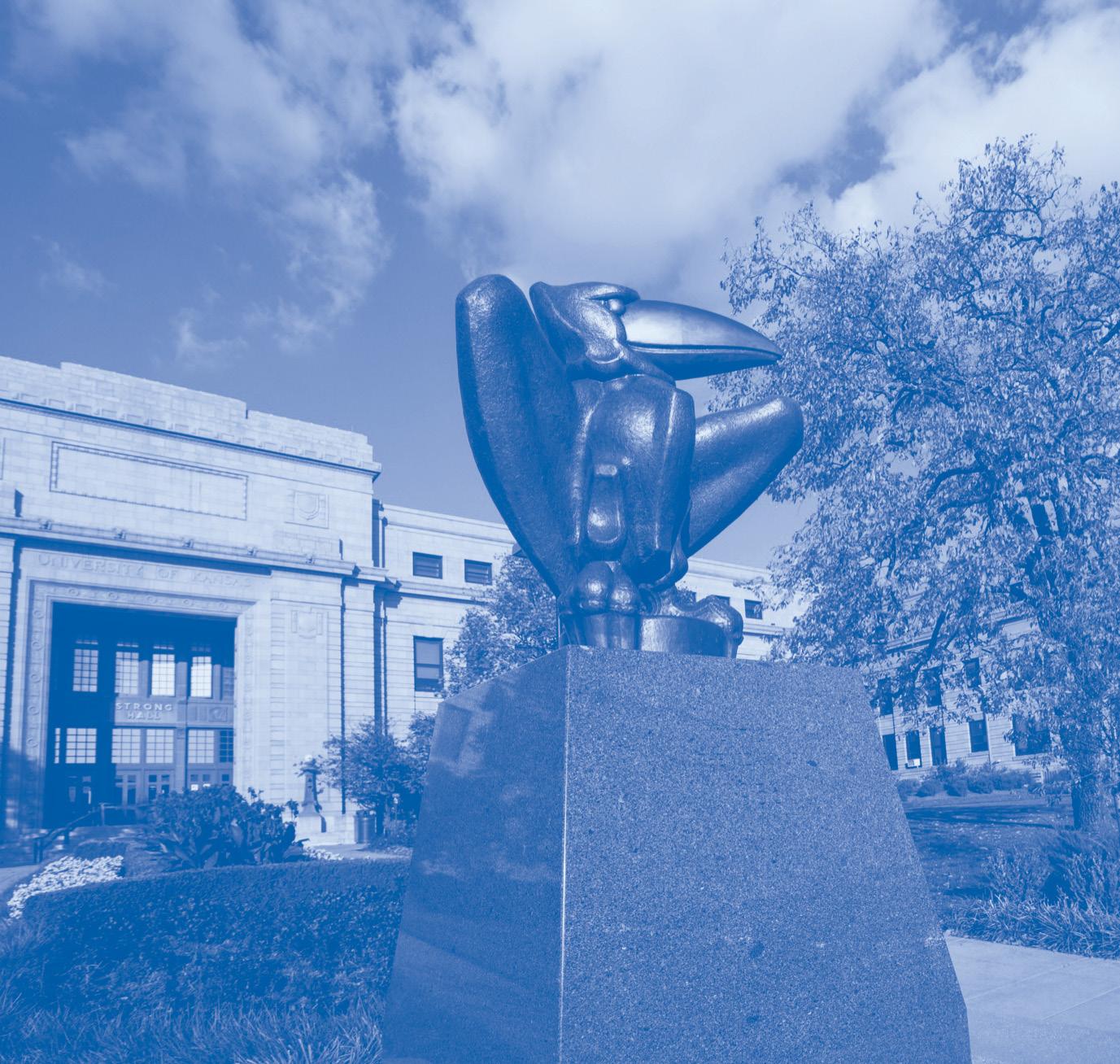
Donations to KU International Affairs expand international education opportunities for all Jayhawks. Support bolsters the international student emergency aid fund for those facing financial challenges. Contributions also enable KU to increase study abroad development and international education opportunities across campus.
Give securely: kuendowment.org/givenow
Please specify the gift will benefit the International Program Development Fund